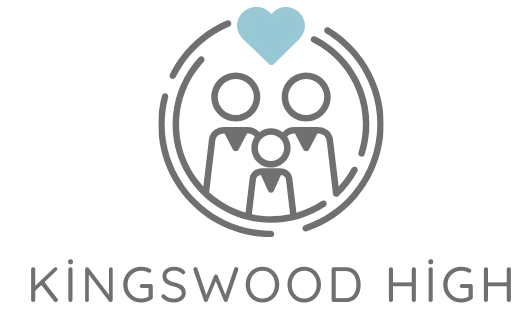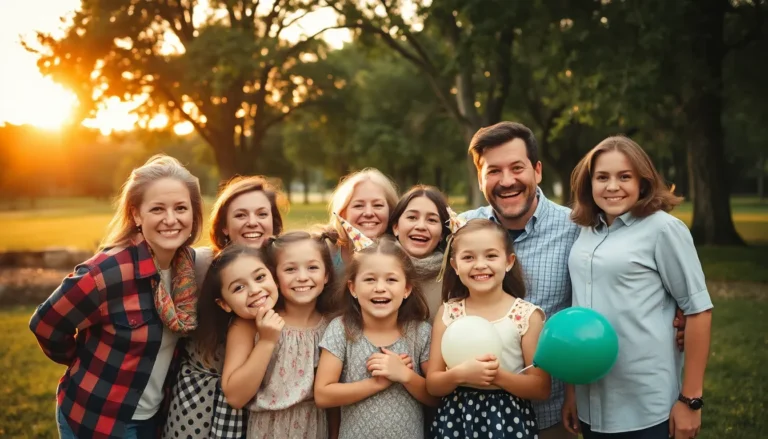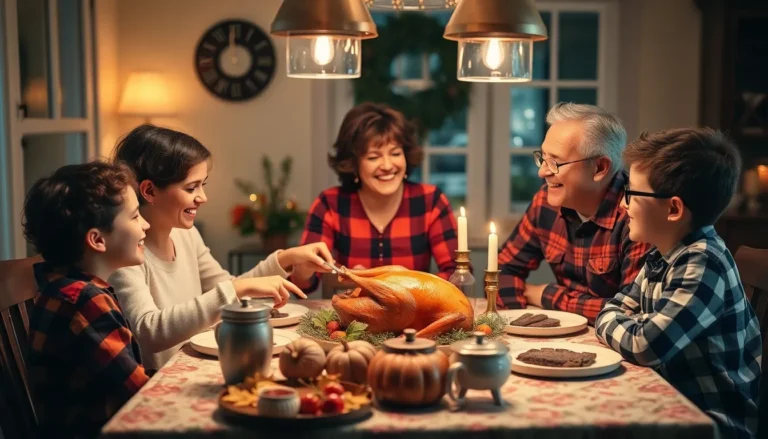Table of Contents
ToggleIrish family traditions are a vibrant tapestry woven with laughter, love, and a sprinkle of mischief. From the lively gatherings around the dinner table to the spirited storytelling that can turn even the most mundane events into epic tales, these customs create bonds that last a lifetime. They say that in Ireland, every meal is a feast and every gathering is an occasion—who wouldn’t want to be part of such a joyful chaos?
Whether it’s the warmth of a Sunday roast or the raucous fun of a wedding celebration, these traditions reflect the heart of Irish culture. Embracing these customs not only honors the past but also brings families closer together in a world that often feels too fast-paced. So, grab a cup of tea and settle in as we explore the delightful quirks and cherished practices that make Irish family traditions truly special.
Overview of Irish Family Traditions
Irish family traditions embody joy, love, and a sense of fun. Gatherings, whether for meals or special occasions, strengthen family ties and showcase the richness of Irish culture. Regular Sunday dinners present a prime example. Families often come together to enjoy classic dishes, fostering connection and joy.
Celebrations reflect the vibrant essence of Irish life. Weddings stand out, as they unite not just couples but entire families, creating lasting memories filled with music and laughter. Rituals play a significant role, connecting generations through shared practices and beliefs. Traditions like the Blessing of the Throat or celebrating St. Brigid’s Day enrich cultural heritage.
Holidays offer additional opportunities for families to come together. St. Patrick’s Day heralds parades and festivities, inviting families to honor their ancestry. Families often partake in local events, integrating community spirit into their traditions.
Specific customs resonate throughout Irish family life. Celebratory gatherings typically involve storytelling sessions, engaging every generation in tales from the past. Music and dance remain integral, creating lively atmospheres that enhance these interactions.
Irish family traditions don’t just celebrate historical beliefs, they evolve. Families continue to adapt customs, ensuring these practices remain relevant in modern contexts. Interactions between different familial units also encourage a broader understanding of heritage while promoting unity and pride.
Sharing food, stories, and laughter symbolizes the heart of Irish culture. These cherished practices form lasting legacies that shape identity and reinforce bonds across generations.
Historical Significance
Irish family traditions carry deep historical significance, rooted in centuries of cultural evolution. These traditions reflect the values and experiences of the Irish people through shared customs and communal practices.
Celtic Influences
Celtic influences permeate Irish family traditions, shaping customs and celebrations. Folk tales often recount ancient mythology, connecting families to their ancestral heritage. Festivals like Imbolc and Beltane highlight the changing seasons, emphasizing agricultural connections. Many food customs trace back to ancient Celtic feasts, showcasing the importance of shared meals in forging family bonds. Additionally, crafts such as weaving and pottery reflect skills passed down through generations, reinforcing family legacies.
The Role of Religion
Religion plays a central role in shaping Irish family traditions, intertwining faith and cultural identity. Catholicism significantly influences many rituals, such as baptisms and confirmations, marking key life milestones. Family gatherings during religious holidays foster unity, offering opportunities for communal worship and celebration. Practices like lighting candles for the deceased demonstrate the enduring connection among family members, highlighting shared beliefs. Overall, religious traditions help maintain a sense of belonging, anchoring families within a broader cultural context.
Common Irish Family Traditions
Irish family traditions encompass a variety of celebrations and rituals that strengthen bonds among relatives. Families often come together during significant occasions and festivals.
Celebrations and Festivals
Celebrations play an essential role in Irish life. St. Patrick’s Day brings families together to honor their cultural heritage with parades and traditional music. Christmas, another vital occasion, features gatherings filled with festive meals and shared gifts. Weddings unite not only couples but entire families, showcasing traditions such as the handfasting ceremony. Additionally, festivals like Imbolc and Beltane mark seasonal changes, celebrating agricultural roots and community spirit. Each event strengthens connections and offers opportunities to pass down heritage to future generations.
Rituals and Customs
Rituals and customs reflect the heart of Irish family life. The Blessing of the Throat, observed in many families, highlights shared religious practices. St. Brigid’s Day celebrates the patroness of Ireland, combining elements of spirituality and community. Storytelling sessions serve as a cherished tradition, engaging all ages while preserving folklore. Music and dance naturally accompany many family gatherings, creating lively atmospheres steeped in cultural expression. Families adapt these rituals over time, maintaining relevancy and enhancing connections. Each practice fosters unity and pride, ensuring that traditions endure through generations.
The Influence of Irish Family Traditions Today
Irish family traditions retain a meaningful presence in numerous aspects of contemporary life. Many families adapt their customs, blending them with modern practices while ensuring the core values remain intact.
In Modern Society
Traditions influence celebrations and gatherings across all generations. Family events now often include traditional Irish foods, like colcannon and soda bread, alongside modern culinary trends. Festive occasions see families donning vibrant green attire to celebrate St. Patrick’s Day, creating a sense of community. Irish music continues to thrive at gatherings, with lively tunes fostering connection. Storytelling thrives as well, especially during family reunions, uniting various generations through shared folklore. These practices preserve a distinct identity while reinforcing bonds nurtured over years.
Preservation of Heritage
Heritage preservation takes shape through continued participation in festivals and rituals. Families engage in customs that honor their ancestry, such as celebrating Imbolc and Beltane. Shared meals connect family members with their roots, as they savor recipes passed down through generations. Many participate in religious observances, reinforcing the sense of belonging and unity. Crafts, such as knitting and weaving, passed down from one generation to the next, showcase traditional skills. These practices not only uphold cultural significance but also inspire future generations to commemorate their Irish lineage.
Irish family traditions are a vibrant tapestry that weaves together history culture and connection. These customs not only celebrate the past but also foster unity and pride in the present. Through shared meals music and storytelling families strengthen their bonds while honoring their rich heritage.
As these traditions evolve they continue to resonate in modern life adapting to contemporary practices without losing their essence. The joy of gatherings and the warmth of familial love ensure that Irish customs remain a vital part of identity for generations to come. Embracing these traditions invites families to create lasting memories and cultivate a sense of belonging in an ever-changing world.







